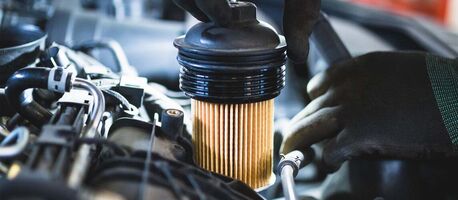How to identify and what are the risks of bad fuel?
Do you know when you start the car and feel that it chokes before you start driving? Or when you're on the street and you feel the engine has lost its power a bit? These are some of the signs that you may have filled your vehicle with bad fuel. It's even a little angry when imagining this situation, isn't it?
After all, fueling your car is quite expensive, and knowing you might be wasting money is pretty frustrating. Even worse is to think that using a fuel of questionable quality damages important parts in your vehicle. In this case, the expenses can be much higher, in addition to spending time without driving, while he is in the workshop.
But there are ways to know if the fuel you buy at the gas stations you use has quality or not. That is one of the points covered in this article. You will also learn more about the importance of paying attention to fueling, the risks of using bad fuel and how to identify the situation. Come on?
The importance of quality fuel
Often, in search of much-needed savings, we end up choosing the gas station to fill up our car for the price advertised on the license plate. Of course this is important, but fuel quality should be your first concern.
After all, we know that tampering is more common in Brazil than we would like to admit, and this can cause a lot of problems in your car. The old maxim “cheap can be expensive” is worth a lot in this situation.
As we'll see below, you can be lucky to have only a few common obstacles, such as the engine “choking” when starting.
Others, however, can be more serious and affect your pocket a lot, hampering your financial planning . We'll talk more about this below.
The risks of bad fuel
Far beyond wasting money, filling up with adulterated fuel can lead to the loss of important parts for your car's operation. The list goes through the tank level gauge (the famous buoy), the pump, the fuel filter , the spark plugs, the injector nozzles and even reaches the oxygen sensor and the catalyst, ultimately damaging the exhaust system. . The damage is great, isn't it?
You can tell if you've been tricked when refueling by feeling signs of starting failure, increased fuel consumption and loss of power, basically. If all this happens at the same time, it is almost certain that you used adulterated gasoline or alcohol . Remembering that, in isolation, these can be symptoms of other car problems, ok?
How to identify if a fuel is bad
Faced with so many problems, the ideal is that you can identify this situation as soon as possible. So you can save your car's components before they need to be replaced, right? Some signs indicate that you're using bad fuel, and that's what we're going to talk about now.
Stay tuned!
The first piece of advice we give you is to control your fuel consumption whenever you refuel. The idea is to reset the mileage and calculate the average km/l that your vehicle usually does. Repeat this often and observe your consumption pattern. If you haven't made major route changes and still spend 15% or 20% more fuel, it's worth being wary.
An important point is to know that, by law, the composition of gasoline can have a maximum of 27% anhydrous ethanol. More than that, it can start to cause starting problems if your engine runs on gasoline. If it is flex, that is, it also allows for a supply with alcohol, the issue is more economical, really.
But beware: some fraudsters use solvents in the composition, as they help make gasoline more profitable, but they mainly damage rubber. In this case, your vehicle may show wear or greater damage to the rubber parts.
You will notice this by checking the hoses for leaks. If there is a drop in engine performance , it may be that impurities have damaged or clogged the filters. To know more please click the button below.



